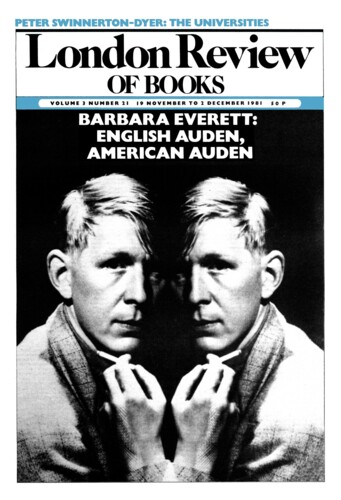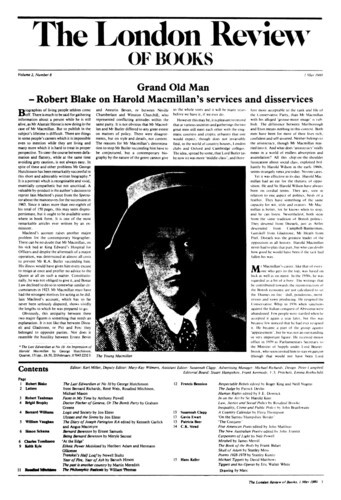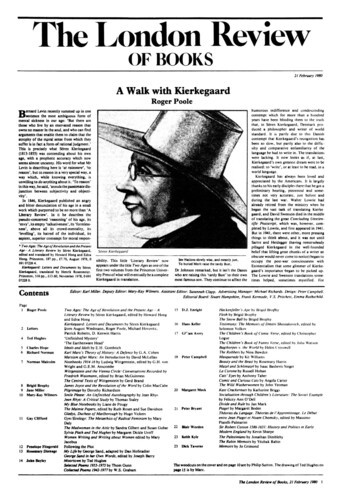Believing in the Alliance
Keith Kyle, 19 November 1981
‘We have defied the laws of arithmetic,’ declared a buoyant David Steel after he had heard the result of the Croydon, North-West by-election, ‘One plus one really does equal three.’ It is now apparent that the public opinion polls were consistently correct in showing that, while support for the Liberal Party as such remained of a traditionally modest order and support for the Social Democrats alone was a similar or even smaller percentage, backing for the two-party alliance as a third force in British politics was a wholly different matter, and promised the chance of a complete breakthrough under the existing electoral system. The evidence for this in the public opinion polls and on the hustings at Warrington and Croydon has been so over whelming that the response at the grass roots of the Liberal Party had already been recognised as decisive, even before the opening of this year’s Liberal Assembly at Llandudno, by such instinctive opponents of the Alliance as the writers in the radical journal New Out-look. Liberals less weighed down with misgivings have begun sporting party buttons that emphasise the word ‘Alliance’ at the expense of ‘Liberal and Social Democratic’.



